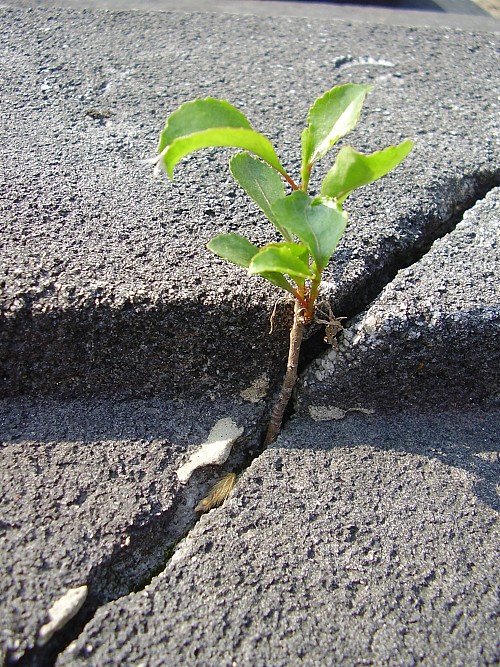Concrete Cracks: Why They Happen and How to Fix Them
The old children’s rhyme may caution us to avoid stepping on cracks, but cracks in concrete can actually be very dangerous -- especially if one is in front of your home or apartment. Sidewalk cracks can cause injury from tripping, or they could be the sign of a much more serious structural problem beneath the surface. Whatever the reason for the crack -- and no matter its size -- you will want to consider fixing it before it becomes a more serious hazard!
Cracks in a concrete sidewalk can happen for several reasons, among them ongoing thermal expansion (like other materials, concrete heats and cools due to weather and other factors), underground tree root issues (while trees take a while to grow, their very strong roots can cause concrete to buckle and crack), and improper compacting of soil when the concrete was initially poured (which can lead to cracks as the soil settles over time). Water can also get into concrete during the rainy seasons; because concrete, like other building materials, is porous, any water that gets in can weaken the overall structure and cause cracks over time.
So, how can you fix cracks once they’ve appeared? First, you need to figure out if the crack is small or large; while smaller cracks can be patched quite easily, larger cracks take some know-how and a bit more time to fix. Regardless of the size of the crack, you’ll need some basic materials in order to repair it:
Concrete crack filler
Caulking gun
A metal trowel
A stiff broom
Plastic sheeting
Protection for your eyes, knees, and hands
Mixed concrete (for larger cracks; optional for smaller cracks)
Paintbrush (for larger cracks)
Hammer (for larger cracks)
Cold chisel (for larger cracks)
For small cracks, first clean the crack well with the broom and a spray bottle of water; this is to prevent detritus, dirt and other things from sticking in the crack and getting in the way of repairs. Next, use the crack filler and caulking gun to seal the crack as closely as possible to where the crack and the concrete meet. Then, scrape the surface with the trowel so that it is flat and smooth. Repeat these steps as necessary in case the crack filler settles into the crack. Cover the work area with plastic sheeting when finished, and leave it alone for a few hours to set.
For larger cracks, there are a few additional things to keep in mind as you repair; for instance, you may want to use a hose to clean dirt from the crack first instead of a spray bottle. Next, it’s time to chip out concrete from the bottom edges of the crack using the cold chisel and hammer, then clean it again with the hose so there’s no dust or debris left. After this step -- and while the work area is still a bit damp from the water -- you will want to use a concrete adhesive to get the new concrete to properly bond to the old concrete. Using a paintbrush, apply the adhesive to the sides of the crack, then leave it alone to solidify a little (no more than a few minutes). Once the adhesive has a little stick to it, apply the concrete mixture with the trowel; be sure to pack it as tightly as you can so that water and other debris can’t get into the crack and make the original problem worse.
From here, follow the steps you would for a smaller crack: after filling the crack as much as possible, scrape any excess off with the trowel so that the cement and filled crack are smooth. After letting it dry for 4-5 hours, spray a little water on the work area with your hose, cover the area with plastic sheeting, and let it sit overnight. For the next 2-3 days -- to make sure that the concrete is bonding properly -- be sure to take the plastic off the area once a day, lightly spray with water, then replace the sheeting. After 4-5 days, the new concrete will have cured successfully -- you can now enjoy your crack-free and safe concrete, and look forward to the day when self-healing concrete is ready for mass production!
Anna Hamilton writes for Networx.com.
Looking for a Pro? Call us (866) 441-6648

Concrete Average Costs
Concrete Contractors Experiences

New Concrete Driveway Tough Enough For Farm Vehicles

I Built A Concrete Retaining Wall As A Defense Against El Nino




